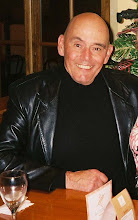On today in 1952, Republican vice-presidential candidate Richard Nixon went on television to deliver what came to be known as the “Checkers” speech. Appearing on flickering, black-and-white sets across America, his wife seated next to him like the stage prop she’d play for the rest of Nixon’s life, he denied allegations of improper campaign financing. At stake was whether Nixon would remain on the GOP ticket with Dwight Eisenhower; at issue was a vicuna coat purportedly given to Pat and a dog supposedly given to their daughters by Republican Party bigwigs seeking favors.
A coat and a puppy! How quaintly innocent it all seems now.
Now, if all you came to offer a politician a coat, you wouldn’t get to take it off before being hustled out of the office and, oh, take that damn dog with you before it pees on the carpet. The whole point of Grover Norquist and Tom Delay’s brainchild, the K Street Project, was to lay tens of millions of slimy corporate dollars across the greasy monkey palms of the Republican Party and its greedy minions on Capitol Hill.
The McCain-Palin campaign is the K Street Project taken to its logical conclusion. It is managed, staffed and run by K Street men who made small fortunes from corporations seeking access to and favors from politicians. One look no further than Rick Davis, the campaign’s manager, who received $5-million from Freddie Mac and Fannie Mae.
"The value that he brought to the relationship was the closeness to Senator McCain and the possibility that Senator McCain was going to run for president again," says Robert McCarson, a former spokesman for Fannie Mae. McCarson told the New York Times that while he worked there, Fannie and Freddie together paid Mr. Davis's firm $30,000 a month, which eventually totalled a handsome $2-million fee.
At the time that Davis was recruited by the two mortgage giants to run the Home Ownership Alliance in 2000, they were under pressure from private industry rivals and deregulation-minded Republicans who argued that the two companies' federal sponsorship gave them an unfair advantage and put taxpayers at risk. As a result, the financial service industry’s go-to guy on the Hill, John McCain’s BFF Phil Gramm, the two institutions were set free to become public companies.
In the end, of course, the de-regulate everything Republican Congress was right. Freddie and Fannie put taxpayers at severe risk but not because they were federally regulated. Instead, cut loose from their minders, Freddie and Fannie joined the Wall St. crowd hanging over the roulette wheels, tossing chips on every number in sight. Odd, even, black, red, it didn’t matter; the thrill was the action more than winning. Eventually, like all addicted gamblers, they – along with their playing partners on Wall St. – played away everything until they didn’t have enough money for a bus ticket home.
So Congress is sending money for a ticket. A whole lot of money for a whole lot of tickets, as it turns out.
But instead of insisting that the addicts agree to go to Gambler’s Anonymous meetings as the price of a free ride home, Hank Paulson – Morgan Stanley’s former $35-million a year man who now runs the US Treasury – says forget any conditions or restrictions or penalties for the not-so-repentant gamblers; just trust me with a trillion dollars, give or take, to straighten things out and I’ll deal with my former lunch club buddies.
Here’s the best part.
The way Paulson and the White House insist the be law written, Treasury alone would hire “consultants” to decide which lousy loans should be purchased, how much they’re worth, to whom they should be re-sold and at what price. Since Paulson wants to do this with no oversight by Congress, administrative agencies or court review, then clearly “consultant” means bankers and other Wall St. moguls. In other words, the people who screwed the pooch in the first place and need rescuing by Washington would be hired to decide which pieces of their toilet paper should be bought up and at what price.
And not Congress nor the courts nor any regulatory agency could override their decisions.
Shorthand: The Ponzi scheme artists who got us into this mess we’re all paying to clean up will make money off of us three more ways, besides the fees they got when they originally packaged, sold or bought the garbage loans. Now, they’ll get fees for untangling their own mess; fees for pricing and re-packaging the garbage being laid off on taxpayers; and, finally, fees for selling the new paper.
“Fees” doesn’t mean minimum wage.
Pres. Bush is said to be balking at some of the restrictions Sen. Chris Dodd and Rep. Barney Frank – chairmen of their respective banking committees – are insisting be written into the law. Despite some jawboning, Bush doesn’t have any real choice but to go along with added provisions such as Congressional and regulatory oversight, homeowner relief and provisions such as controlling bonuses for executives of banks seeking help.
Why? Because if Bush refuses to sign the eventual measure, the good news is that no one will remember his Iraq disaster; the bad news is he will be remembered as the 21st century’s Herbert Hoover.
We sure have come a long way from when a vicuna coat and a puppy were major scandals.
Tom Degan
1958-2023
To all Tom’s faithful readers of the Rant, we are sad to announce that he
passed away on December 7th, 2023. Thank you so much for th...


No comments:
Post a Comment